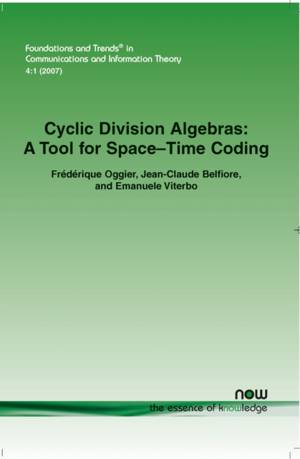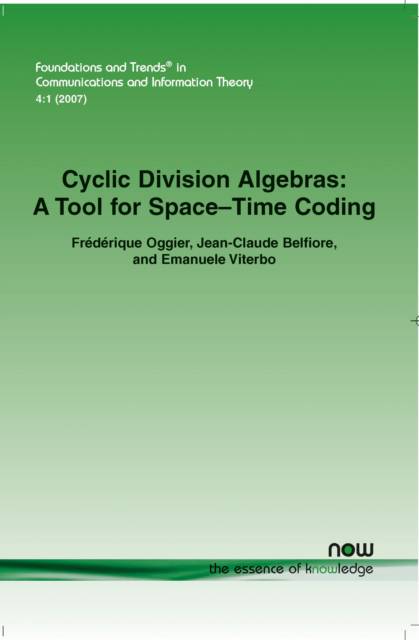
- Afhalen na 1 uur in een winkel met voorraad
- Gratis thuislevering in België vanaf € 30
- Ruim aanbod met 7 miljoen producten
- Afhalen na 1 uur in een winkel met voorraad
- Gratis thuislevering in België vanaf € 30
- Ruim aanbod met 7 miljoen producten
Zoeken
Cyclic Division Algebras
A Tool for Space-Time Coding
Frederique Oggier, Jean-Claude Belfiore, Emanuele Viterbo
€ 92,95
+ 185 punten
Omschrijving
Provides a tutorial introduction to the algebraic tools involved in the design of codes based on division algebras. The different design criteria involved are illustrated, including the constellation shaping, the information lossless property, the non-vanishing determinant property and the diversity multiplexing tradeoff.
Specificaties
Betrokkenen
- Auteur(s):
- Uitgeverij:
Inhoud
- Aantal bladzijden:
- 108
- Reeks:
Eigenschappen
- Productcode (EAN):
- 9781601980502
- Verschijningsdatum:
- 16/11/2007
- Uitvoering:
- Paperback
- Afmetingen:
- 156 mm x 234 mm
- Gewicht:
- 165 g

Alleen bij Standaard Boekhandel
+ 185 punten op je klantenkaart van Standaard Boekhandel
Beoordelingen
We publiceren alleen reviews die voldoen aan de voorwaarden voor reviews. Bekijk onze voorwaarden voor reviews.








